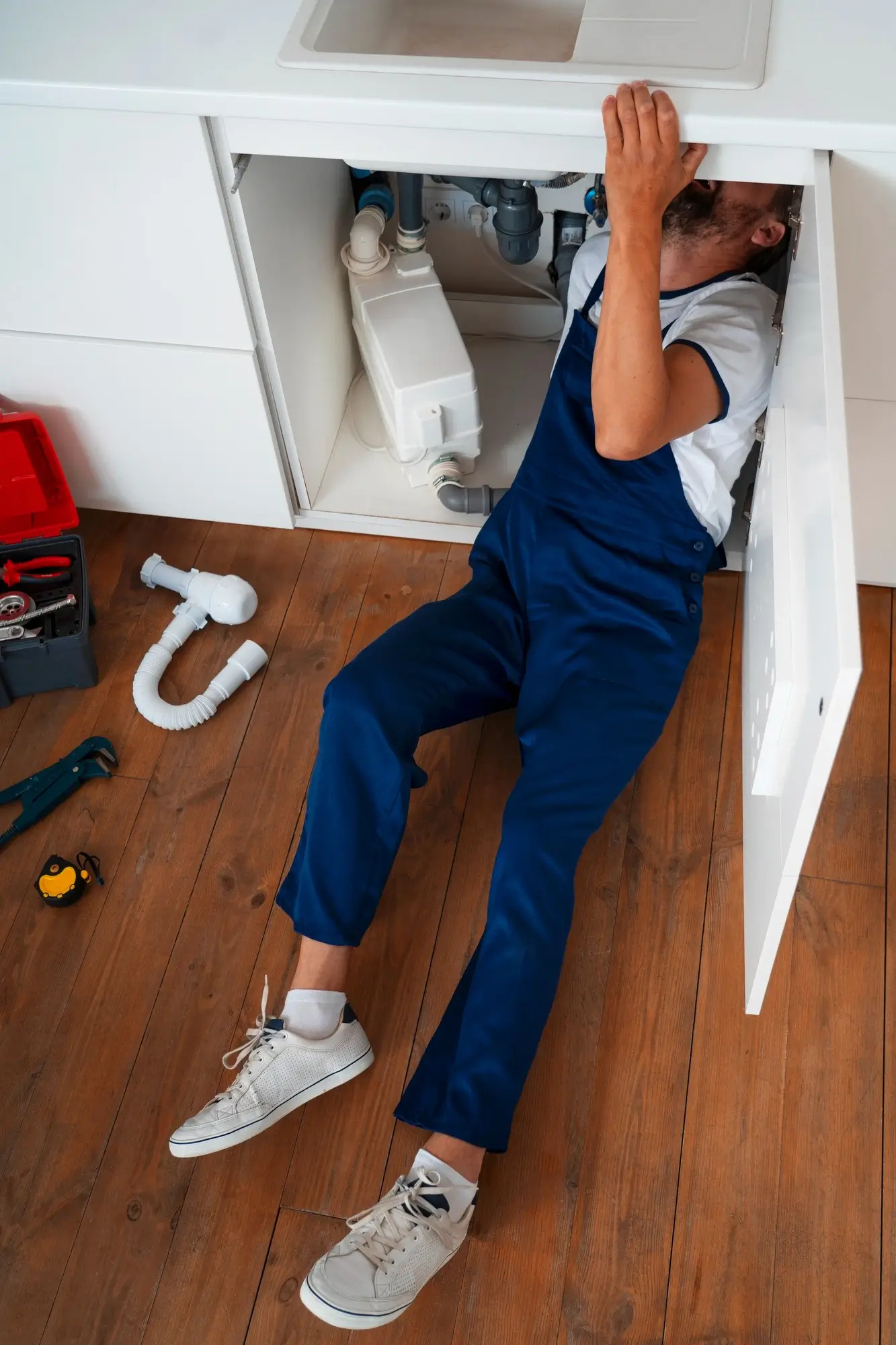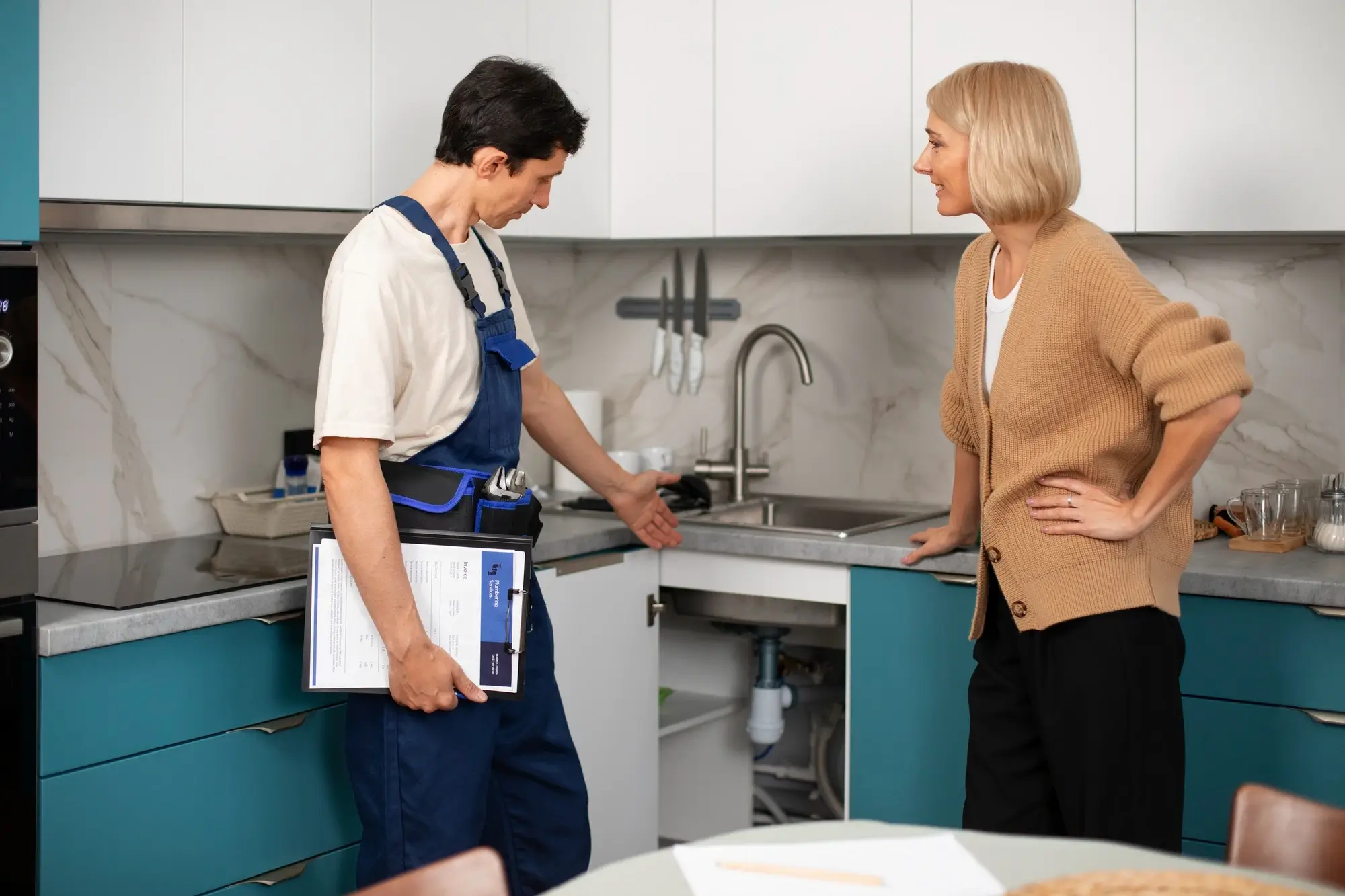Frequently Asked Questions
How much do I pay a plumber?
The cost of hiring a plumber can vary widely depending on factors such as the type of service, regional rates, and the complexity of the job, typically ranging from $45 to $200 per hour.
What is a plumber used to do?
The role of a plumber involves installing, repairing, and maintaining plumbing systems, including pipes, fixtures, and water heaters, to ensure proper water flow and sanitation in residential and commercial properties.
What is the average hourly rate for a plumber in Georgia?
The average hourly rate for a plumber in Georgia typically ranges from $45 to $150, depending on the plumber's experience, location, and the complexity of the job.
What factors affect a plumbers rates?
The factors affecting a plumber's rates include their experience level, the complexity of the job, the materials required, geographic location, and any additional services needed, such as emergency response or specialized tools.
How to find a reliable plumber?
Finding a reliable plumber involves researching local professionals, checking online reviews, asking for referrals from friends or family, and ensuring they are licensed and insured to provide quality service.
When should I hire a plumber?
Knowing when to hire a plumber is crucial for maintaining your plumbing system. You should seek a professional plumber when you encounter persistent leaks, clogged drains that won't clear, or require installation and replacement of fixtures or water heaters.
What services do plumbers typically offer?
Plumbers typically offer a range of services including installations, repairs, and maintenance of pipes, fixtures, and water systems. They can handle issues like leaks, clogs, water heater installations, and the fitting of water filtration or softening systems.
How do I estimate plumbing costs?
Estimating plumbing costs involves considering factors such as the type of service needed, materials required, and labor rates. Obtaining quotes from local plumbers can provide a clearer picture of potential costs for your specific plumbing project.
What qualifications should a plumber have?
The qualifications a plumber should have include a high school diploma or equivalent, completion of an apprenticeship, relevant licenses, and certifications, along with experience in plumbing systems, codes, and safety regulations to ensure quality workmanship.
Are there emergency plumbing services available?
Emergency plumbing services are available to assist you during urgent situations. Our professional team is ready to tackle any plumbing crisis, ensuring prompt and reliable solutions to minimize damage and restore your home's plumbing system.
What plumbing issues require immediate attention?
The plumbing issues that require immediate attention include severe leaks, overflowing toilets, burst pipes, and sewage backup. These problems can cause significant water damage and health hazards if not addressed promptly.
How can I prevent plumbing emergencies?
Preventing plumbing emergencies involves regular maintenance checks, prompt repairs of leaks, and proper disposal of waste. Additionally, monitoring your water pressure and being cautious of what goes down drains can significantly reduce the risk of issues.
What tools do plumbers commonly use?
The tools that plumbers commonly use include wrenches, pipe cutters, pliers, plungers, and drain snakes, all essential for tasks such as repairing pipes, clearing clogs, and installing fixtures effectively.
How do I check a plumber’s credentials?
To check a plumber’s credentials, verify their licensing, insurance, and certifications through your state’s regulatory board or website. Additionally, read reviews and request references to ensure they have a good reputation and solid experience.
What is the role of a plumber?
The role of a plumber is to install, repair, and maintain water, sewage, and gas systems in residential and commercial properties, ensuring efficient and safe operation of plumbing fixtures and appliances.
How long does plumbing work usually take?
The duration of plumbing work typically varies based on the complexity of the job. Simple repairs may take just a few hours, while larger installations or renovations could take several days to complete.
Are plumbing estimates usually free?
Plumbing estimates are typically free. Many plumbing companies offer complimentary estimates to assess your needs and provide an accurate cost for the work required, ensuring you have no unexpected charges before proceeding.
What happens during a typical plumbing inspection?
A typical plumbing inspection involves a comprehensive assessment of your home's plumbing system. The plumber will check for leaks, evaluate pipe conditions, inspect fixtures, and assess water pressure to ensure everything is functioning properly and meeting safety standards.
How can I learn plumbing skills?
Learning plumbing skills can be achieved through a combination of hands-on training, online courses, and apprenticeships. Consider enrolling in local vocational programs or seeking mentorship from experienced plumbers to gain practical experience and knowledge.
What are common plumbing problems at home?
Common plumbing problems at home include leaky faucets, clogged drains, running toilets, low water pressure, and burst pipes. Regular maintenance and prompt attention to these issues can help prevent more extensive damage and costly repairs.
How often should plumbing be maintained?
Plumbing maintenance should be performed at least once a year to ensure optimal performance and prevent potential issues. Regular checks help identify leaks, clogs, and wear, extending the lifespan of your plumbing system.
What should I look for in plumbing contracts?
When reviewing plumbing contracts, focus on key elements such as the scope of work, payment terms, warranty details, completion timeline, and any included permits or inspections to ensure clarity and protect your investment.
What’s included in a plumbing service call?
A plumbing service call includes a thorough inspection of your plumbing system, identification of issues, and recommendations for repairs or maintenance. Additionally, it may involve minor repairs or adjustments, ensuring that your plumbing operates efficiently.
How can I reduce my plumbing costs?
Reducing your plumbing costs involves regular maintenance, promptly addressing minor leaks, and being mindful of water usage. Additionally, investing in quality plumbing fixtures and water-efficient appliances can help prevent costly repairs and conserve water.
What are the signs I need a plumber?
The signs you need a plumber include frequent leaks, persistent clogs, low water pressure, unusual noises from pipes, or water discoloration. If you notice any of these issues, it's best to call a professional to assess the situation.
Are there special rates for weekend plumbing?
Special rates for weekend plumbing services vary by company. At Haynes Heating & Air Conditioning, we strive to offer competitive pricing, ensuring that you receive quality service on weekends without unexpected charges.
How can I find local plumbers quickly?
Finding local plumbers quickly can be achieved by searching online directories, utilizing social media, or asking for recommendations from friends and family. Additionally, local reviews and ratings can help you choose reputable plumbing services in your area.
What types of plumbing pipes are used?
The types of plumbing pipes commonly used include PVC, CPVC, PEX, copper, and galvanized steel. Each type has its specific applications, benefits, and limitations, making it essential to choose the correct pipe for your plumbing needs.
What regulations govern plumbing work in Georgia?
The regulations that govern plumbing work in Georgia include the Georgia Plumbing Code, which outlines standards for plumbing installations and maintenance to ensure safety and compliance. Licensed plumbers must adhere to these codes to perform work legally in the state.
How to prepare for a plumbers visit?
Preparing for a plumber's visit involves clearing the area around the plumbing problem, ensuring easy access, and having any relevant information ready, such as previous service history and specific issues you've encountered.


